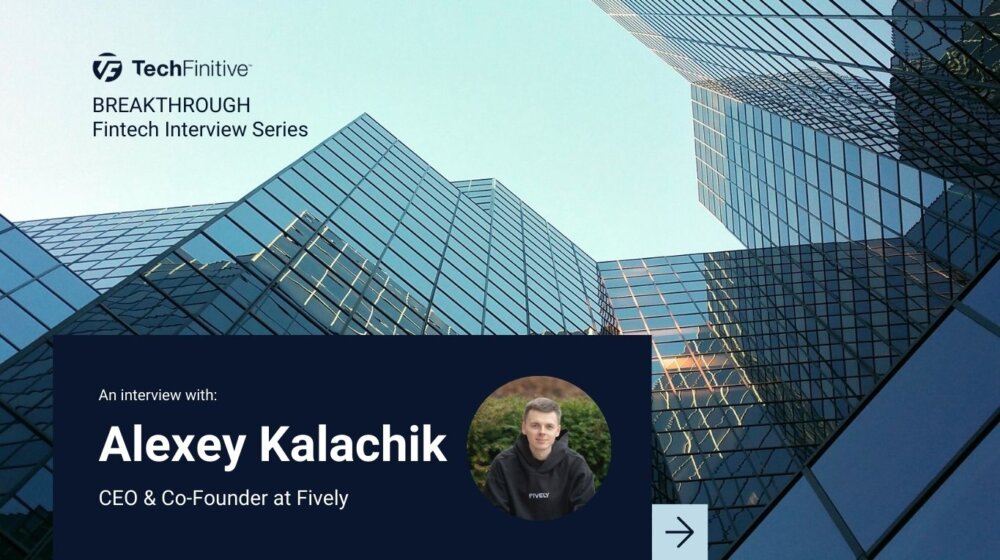
Sarah Whitfield, CMO at Covatic: “The more efficiencies AI delivers, the more important creativity becomes”
Crunch time is coming for marketers. Google started restricting third-party cookies for 1% of Chrome users from 4 January 2024, with a complete phase out proposed during Q3. That means savvy marketing leaders such as Sarah Whitfield, CMO at Covatic, are already planning for big changes.
“This [move by Google], combined with tightening legislation and increasingly diverse audiences, means that effective ad targeting is getting increasingly complicated,” she said, when looking ahead to what the rest of 2024 has to offer. “I expect widespread trialling and adoption of alternative targeting solutions that address these concerns while still preserving users’ online privacy.”
However, Sarah explains, that’s where AI can step up. “AI has also enabled advertisers to develop alternative targeting solutions that don’t rely on identifiers,” she said. “Instead, large volumes of data are analysed by AI tools to identify relevant characteristics in anonymous users, to fuel privacy-centric, targeted advertising.”
All of this is a long way from when Sarah moved into her first marketing role in the late 1990s. During a storied career, she has held many notable leadership roles — including VP of Marketing, Europe, at AOL & The Huffington Post, VP of Global Marketing Programmes & Corporate Communications at Outbrain, and VP of Global Marketing at Pearson.
In her current role as Chief Marketing Officer (CMO) at Covatic, she is responsible for developing and executing marketing strategies that place the company on the global stage as a pioneer in the AdTech industry. Through this insight-packed interview, you’ll get an idea of how.
Why Dust or Magic? That stems from a quote by legendary American advertising creative director, William Bernbach: “An idea can turn to dust or magic, depending on the talent that rubs against it.” (And if you’re wondering where you’ve heard the name, Bernbach was the inspiration behind Don Draper of Mad Men fame.)
Could you please introduce yourself to our audience? What motivated you to pursue a career in marketing, and how did you embark on your journey in this field?
I’m Sarah Whitfield, CMO at Covatic, a B Corp Certified company that helps media companies deliver advertising and content to targeted audiences without exposing personal data. This means advertisers can expand their addressable audience and improve their ROI while still maintaining customer trust.
When I was younger I studied psychology; in fact, I started my working life in clinical psychology. I’ve always been fascinated by human interactions with companies and brands, so when the opportunity arose to work for an agency in London, I jumped at the chance to transition into communications and marketing. The same curiosity that made me change careers all those years ago still drives me, 27 years later, and I am incredibly lucky to still love what I do.
Advertising is one of the fastest-moving industries, so things are never quiet – stamina and energy are must-haves to keep up with the pace. There is always a new adventure around the corner and my career is a shining example of how dynamic this field can be. Success in marketing depends on the company you keep and the relationships you build and I’m lucky to have had inspirational leaders steer me towards opportunities I could never have imagined, and help me carve a successful path in the industry.
What are your thoughts on the escalating integration of AI in digital marketing and its potential influence on the future of marketing, Martech and social media?
I think there is still a divide between what marketers are experimenting with and what programmers and developers are working on in the deepest corners of the programming world, but there’s no doubt AI has already solved many inefficiencies for marketers.
However, bigger changes are yet to come. Experts are saying AI technologies will transform research fields, particularly concerning the quality and quantity of data, which is the foundation of good marketing. This will level the playing field between large and smaller businesses, and enable brands to test, refine and optimise strategic tactics based on real insights to improve communications.
That said, I don’t believe AI will ever be able to understand or anticipate human behaviours as we can, so creativity and deep human storytelling cannot be fully replicated by algorithms. Moreover, consumers value brands that reflect their values, and although AI can help uncover audiences, establishing those meaningful, authentic connections will always require humans.
Related reading: AI copyright: should your business be worried?
How do you ready yourself for an AI-driven landscape as a marketing leader? What new skills do you need?
I think having an open mind and a curiosity about technology is important – but that doesn’t mean everyone in the marketing team needs to be a tech expert. The tech is there to help us be smarter, faster and more efficient. According to a recent survey, 70% of marketers said AI would enable faster market research on prospects and consumers. There have also been discussions around the idea that the technology could facilitate implementing a four-day working week. Instead of fighting against AI, people should embrace how it could benefit businesses and employees.
However, some level of employee attrition will be inevitable, so organisations need to tread carefully when incorporating AI-powered solutions. It should be about making work more efficient, not just cheaper. Technology is there to enhance the way we work, not to replace us.
Looking ahead to 2024, what AdTech trends do you expect to dominate?
CTV [Connected TV] and streaming services saw fantastic growth this year, but FAST platforms and channels will be a particular point of focus for advertisers in 2024. Addressability challenges, which have so far plagued the sector, are being solved by emerging technologies – such as Covatic’s own on-device tech – turning large volumes of audiences into premium addressable inventory.
Privacy will also continue to dominate industry discussions as we approach Google’s cookie deprecation deadline. This, combined with tightening legislation and increasingly diverse audiences, means that effective ad targeting is getting increasingly complicated. I expect widespread trialling and adoption of alternative targeting solutions that address these concerns while still preserving users’ online privacy.
How do you think AI might evolve B2B Marketing and/or ABM strategies in 2024?
AI has already played a significant role in transforming B2B marketing, especially where sales and marketing intersect. Generating leads has become more efficient and streamlined, while refinement, optimisation, and audience identification using analytics tools have enabled marketers to effectively target audiences across different channels.
Unfortunately, the use of these tools cannot conceal a poor understanding of customers, misaligned insights, or badly crafted mass marketing.
The more efficiencies AI delivers, the more important creativity becomes – critical for long-term brand building. Not only can laborious processes be automated, but AI has also enabled advertisers to develop alternative targeting solutions that don’t rely on identifiers. Instead, large volumes of data are analysed by AI tools to identify relevant characteristics in anonymous users, to fuel privacy-centric, targeted advertising.
Related reading: What will the digital landscape look like in 2028?
What core values have played a pivotal role in shaping your approach to marketing and communication?
For starters, placing the customer at the heart of the business is non-negotiable. Consumers prefer brands they resonate with and crave connections beyond transactions. It’s a marketer’s job to understand audiences and then offer something of value to them. We can’t replace genuine connections with superficial tactics.
Another core value of mine is to constantly try new things. I’ve never been afraid to take risks, and some of the most exciting moments of my career have been industry firsts; whether it was using the first real-time interactive OOH screens across London to communicate with customers, or bringing a new approach to advertising via Covatic to an entire industry. Growth happens when we step outside of our comfort zone and dare to try – regardless of the outcome.
How do you ensure you’re up to date with the latest marketing trends and technologies, and how do you integrate them into your strategies?
One of the easiest ways to ensure you are up to date is by subscribing to a range of industry publications and dedicating a few minutes each day to reading about what’s new, what’s changed, and what’s to come. However, it’s in the people around me that I find the most knowledge. I’m privileged to have an invaluable network of industry experts and friends, and cannot stress how important the connections we keep are in shaping who we become.
Working in a fast-growing tech company has kept me on my toes and truly given meaning to the ‘time is money’ adage. It’s important to act fast, fail fast, and try again. Making informed decisions is important, but it’s easy to cross into ‘waiting to see if someone fails first’ territory.
Someone once told me ‘doing nothing is worse than doing something and perhaps getting it wrong’ and it couldn’t be more true in marketing. Even if by ‘doing something’ that means holding your current path, you have still made a choice; whereas to stall is damaging. Marketing is very much about making choices.
It’s also vital to continuously educate teams, share skills and allow people to learn and grow – and it all starts from the top. Part of my role as a leader is to inspire others to try new things and push beyond their perceived limits. There are no limits, as Covatic has proven. The way we work, the companies we work with, and how fast we’re growing is proof that pushing boundaries can get you further than sitting comfortably.
What piece of advice would you offer to fellow marketing leaders that has been particularly beneficial to you personally?
Stay forever curious and embrace change. As I said, growth happens when we test our limits and do things we wouldn’t normally do. Embracing the inevitable allows us to learn, grow and ultimately succeed.
NEXT UP

Alexey Kalachik, CEO & Co-Founder at Fively: “The potential for digitalisation within insurance is enormous”
We interview serial entrepreneur Alexey Kalachik, CEO & Co-Founder at Fively, on the future of fintech and what makes this space so exciting for startups.

IBM bolsters AI push with Microsoft Copilot launch
In a bid to boost its AI offering, IBM Consulting will enable enterprises to create and manage AI copilots – including Copilot for Microsoft 365

Andrew Kay, Director of Systems Engineering APJ at Illumio: “The most worrying development with ransomware is that it has evolved from simply stealing data to impacting IT availability”
Andrew Kay, Director of Systems Engineering APJ at Illumio, has 20 years’ experience helping organisations strengthen their cyber resilience. We interview him as part of our Threats series on cybersecurity.